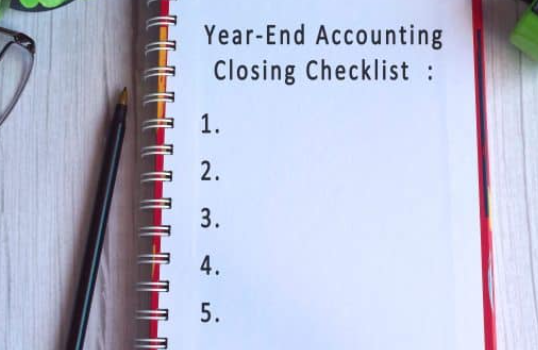
Understanding the cost of year-end accounting services can often be a bit of a mystery, especially when you receive quotes ranging from hundreds to thousands of pounds. Many business owners wonder what drives these differences and what exactly they’re paying for when it comes to professional accounting services.
The cost of preparing year-end accounts isn’t determined by a single factor like turnover; it’s influenced by multiple elements that affect how much time and effort an accountant must invest in your business. Here, we’ll break down the key factors that impact the price, help you avoid overpaying, and explain how bundled accounting services can benefit your growing business.
What Are Year-End Accounts and Why Are They Important?
Year-end accounts are essential documents that businesses must submit for legal and tax purposes. They provide a snapshot of your financial performance over the past year, typically including a balance sheet, profit and loss statement, and tax calculations. However, their value goes beyond compliance—these accounts give you vital insights into your business’s operations.
Here’s why they matter:
- Investor Relations: Accurate and detailed accounts enhance your credibility with potential investors and partners.
- Efficiency Tracking: Year-end accounts reveal inefficiencies in cost management or revenue generation, allowing you to make data-driven decisions.
- Tax Optimization: Well-structured accounts can help minimize your tax liability by identifying overlooked reliefs and deductions.
- Trust Building: Lenders and other stakeholders rely on clear financials, speeding up approval processes.
In short, year-end accounts are not only for filing with tax authorities—they serve as a tool to demonstrate the strength and scalability of your business.
How Much Do Year-End Accounts Typically Cost?
In the UK, the cost of year-end accounts generally ranges between £500 and £1,500 for small businesses. However, the final price depends on several factors, including:
- Business Complexity: More complex businesses, with multiple income streams or intricate tax issues, require more time and effort from accountants.
- Quality of Record Keeping: If your books are disorganized, accountants may charge extra to clean up and reconcile them.
- Monthly vs. One-Time Support: Businesses that opt for ongoing accounting services typically pay less over time than those seeking one-off filings.
Here’s a rough breakdown of what you can expect to pay:
- Simple Business (e.g., micro-businesses): £600–£800
- eCommerce Businesses (with VAT and stock management): £1,200–£1,500
- Startups (including forecasting and payroll): £250–£400 per month
While one-off filings may appear cheaper initially, businesses with more complexity benefit from year-round support, which reduces long-term errors and offers time-saving benefits.
What Should You Pay for Year-End Accounts?
There’s no universal pricing structure when it comes to year-end accounts. The fees you pay should align with your business’s complexity and growth stage. Here’s a guide to typical charges:
- Sole Traders: £250–£500 for basic tax returns
- Single-Director Limited Companies: £500–£800
- Small Businesses with Payroll & VAT: £1,000–£1,500
- Growth-Stage Companies: £250–£400 per month for ongoing support and advisory services
Fixed-fee packages are often more valuable than ad-hoc filings because they cover ongoing support, reduce errors, and ensure tax handling is done efficiently.
What Other Accounting Services Should You Consider?
Many businesses need more than just year-end accounts. If your business requires additional services, here are the typical costs for those services when billed separately:
- Bookkeeping: £20–£50 per hour
- Tax Return Preparation: £150–£500 per return
- Financial Planning & Forecasting: £100–£300 per hour
- Part-Time CFO Services: £750–£5,000 per month
The complexity of your business will influence the fees for these services. Bundling them into a package often offers better value, especially for businesses that are expanding or require regular support.
Factors Affecting the Cost of Year-End Accounts
The price for year-end accounts isn’t fixed. Here are the key factors that impact how much you’ll pay for accounting services:
- Data Quality: Well-organized, reconciled financial data leads to lower fees. Messy records or inconsistent bookkeeping can significantly increase the cost.
- Transaction Volume: The higher the number of transactions, the more time accountants need to review, especially if they lack proper categorization.
- Revenue Recognition: If your business uses accrual accounting or deals with deferred revenue, this adds to the complexity of your accounts.
- Multi-Entity or Multi-Currency: Businesses operating internationally or with multiple entities will incur additional charges due to the need for consolidation and currency conversion.
- Industry-Specific Requirements: Certain industries, such as eCommerce, tech, or food and drink, require additional financial breakdowns or compliance handling.
- Supporting Documentation: Businesses that require audit readiness, investor reporting, or detailed due diligence will incur additional fees for document preparation and review.
Choosing the Right Accountant for Your Business
When selecting an accountant, it’s important to consider how they work, not just their pricing model. There are three main types of accounting services:
- Boutique Firms: Ideal for startups and growth-stage businesses, offering tailored, strategic advice.
- Online Accountants: A low-cost option for small businesses with simple needs, typically offering digital-only services.
- Traditional Practices: Best suited for local businesses that prefer in-person support, although these can often be more expensive and less tech-savvy.
Each model has its strengths and weaknesses. The right choice depends on your specific needs, such as the level of personalized service you require or the complexity of your financial situation.
Conclusion
The cost of year-end accounts is an investment in the health and growth of your business. While it may be tempting to look for the cheapest option, the value of an experienced, reliable accountant goes beyond mere compliance. You need someone who understands your business’s unique needs and can provide ongoing support to help you scale, save on taxes, and make informed decisions throughout the year.
For growing businesses, a bundled package that includes year-round advice, tax planning, and regular support is often the most cost-effective and strategic choice. As you scale, consider investing in an accountant who can offer more than just basic filing services, ensuring your business is prepared for the challenges ahead.









